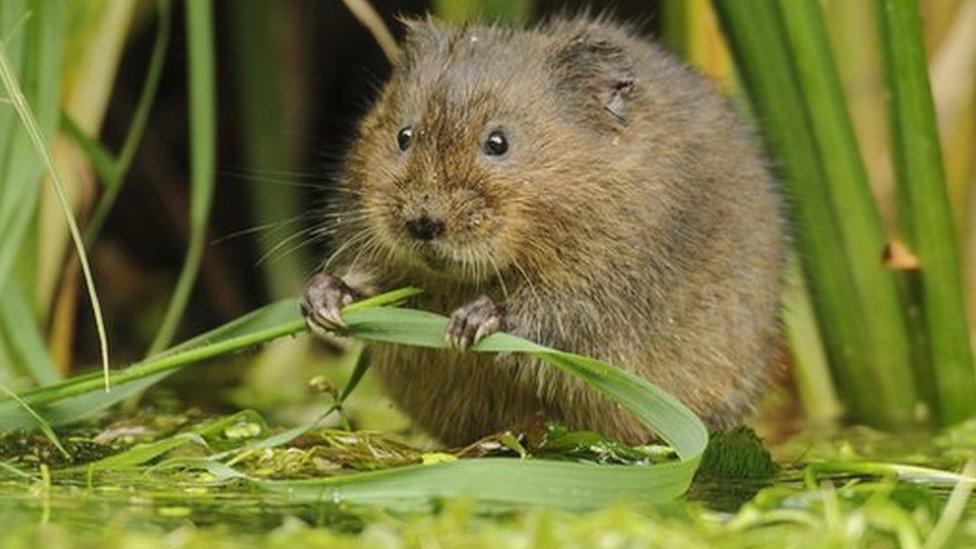Farmers in Wales: Why are they ready to protest?
- Published
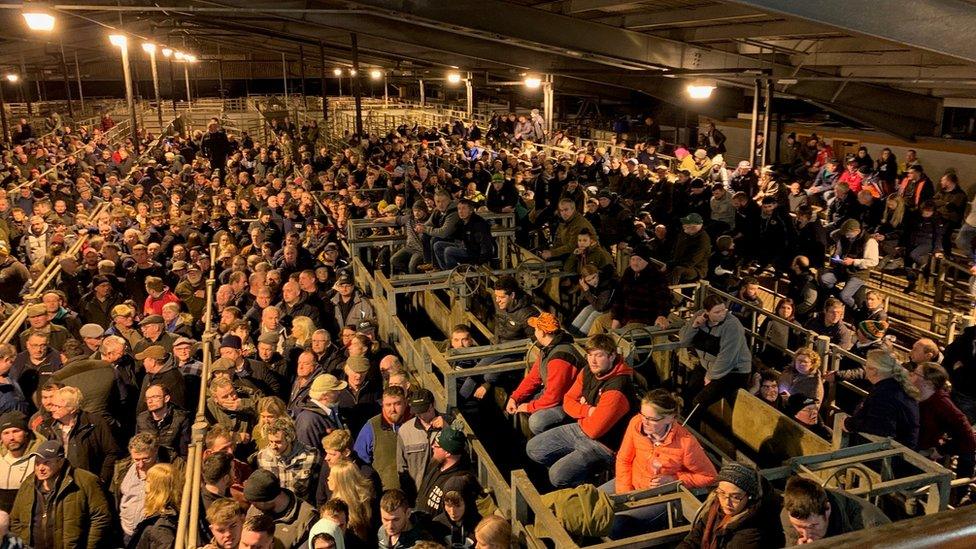
Thousands of farmers gathering for a mass meeting in Carmarthen at the start of February
Scenes of farmers protesting in their tractors across Europe have claimed the headlines recently.
From country to country the reasons for farmers' unhappiness varies - but rising costs, tighter regulations and policy changes are common complaints.
Now farmers in Wales are also threatening action, claiming that the Welsh government has turned its back on the countryside.
Ministers completely reject that, arguing their commitment to farming "at this challenging time is very clear".
So what are the issues that are causing this resentment here?
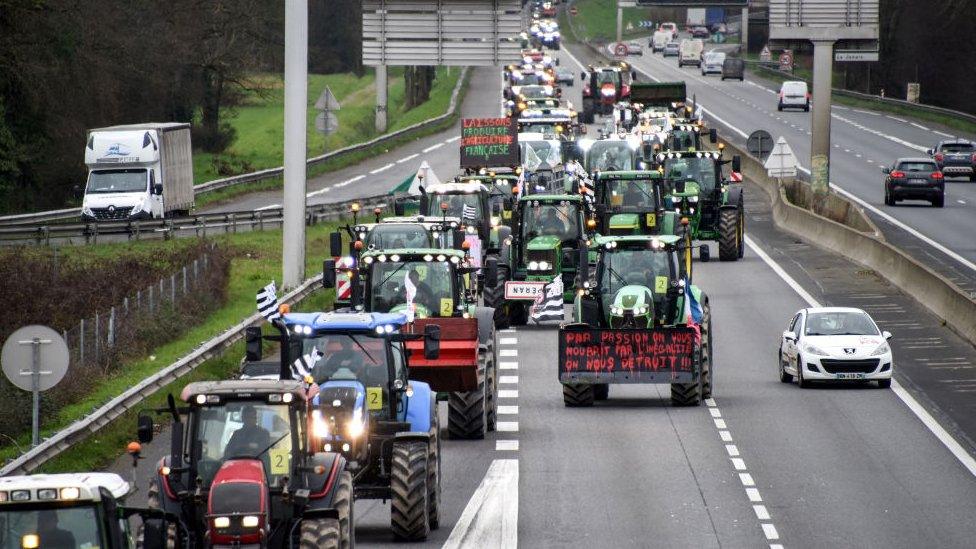
Farmers outside Rennes, France during nationwide protests over pay, tax and regulations
Sustainable Farming Scheme
The spark that ignited the flames here was probably the publication of the latest consultation on the Sustainable Farming Scheme., external
This is the Welsh government's big plan for funding the industry after Brexit - which puts a lot more emphasis on the environment.
In order to gain access to the scheme, farmers will have to commit to having trees on 10% of their land, and earmark another 10% as wildlife habitat.
Arguing that this isn't practical while keeping a farm business going, many are concerned that the other requirements of the scheme will overwhelm them with paperwork.
On the other hand, the government is also under pressure from environmentalists to ensure that the plan is ambitious.
As 80% of Wales' landscape is under the care of farmers, the argument is that they have a key role to play in helping the effort to tackle climate change and the losses in nature.
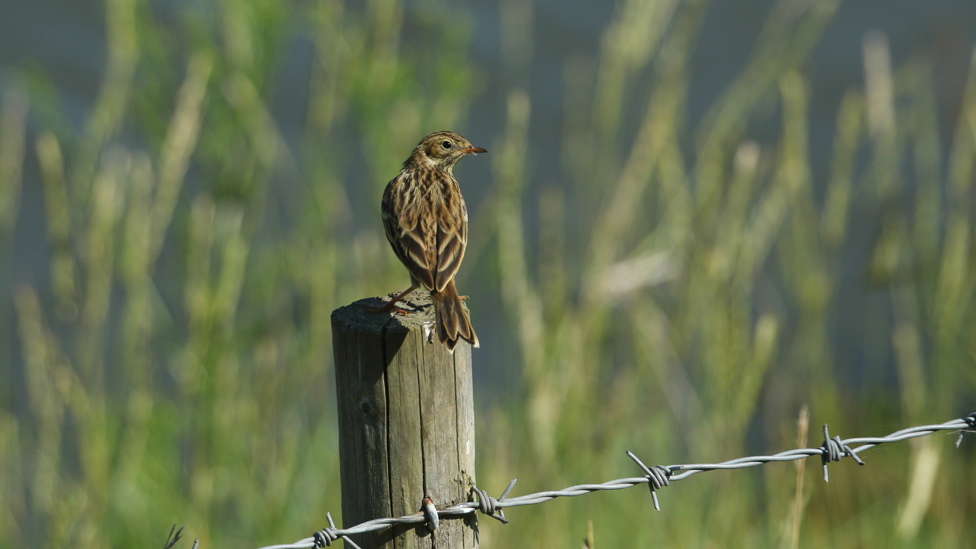
Money for encouraging wildlife, like this meadow pipit, is less than under the previous programme
Habitat Wales Scheme
Before the Sustainable Farming Scheme is introduced from 2025 onwards there is another row about temporary environmental payments in 2024.
The amount that is offered financially under the Habitat Wales Scheme , external- to reward farmers for helping wildlife - is 45% lower than under the old system - the Glastir scheme.
The Welsh government insists that it has had to prioritise protecting the budget of the basic payment that farmers are used to, receiving based on the amount of land under their care. You may hear farmers refer to this as the BPS.
But the situation has angered farmers of all stripes - including the most environmentally-friendly ones that the government wants to see succeed.
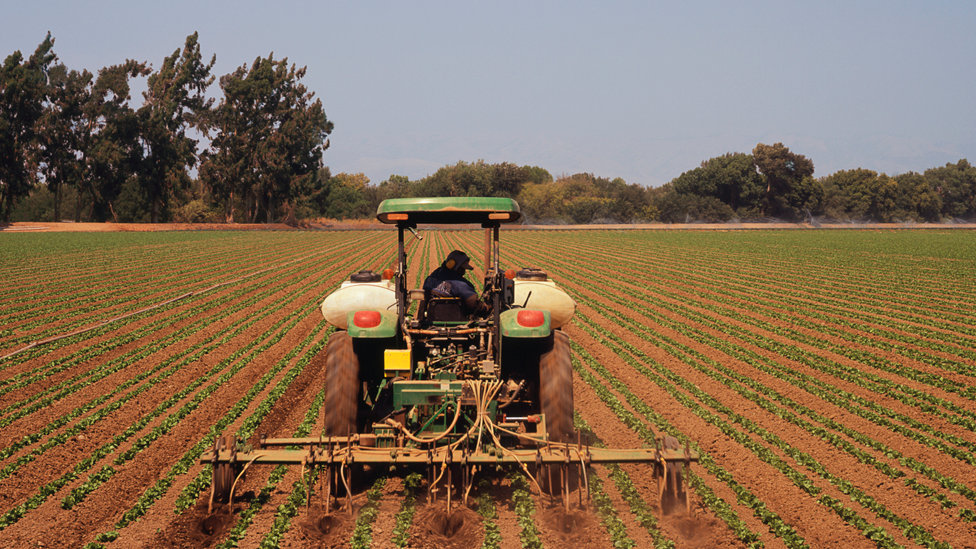
Ministers say regulations to control how slurry and fertilisers are used are vital to tackle pollution incidents
NVZ
Here are three more letters which are often on the lips of farmers.
Until recently, approximately 4% of Welsh land was designated as nitrate vulnerable zones.
These are areas with strict rules on the storage and spreading of man-made fertilizer and animal manure in order to protect water quality in our rivers.
But in 2021 the Welsh government decided to expand similar rules to NVZ to encompass the whole country.
The change is being introduced gradually but in due course farmers will only be allowed to spread these fertilisers at certain times of the year, which means that many will have to invest significant money in storage or reduce the amount of animals they keep.
Fishermen and river campaigners insist that strict regulation is needed.
TB
Last, but not least, is the effort to tackle tuberculosis or TB in cattle.
For some farmers this is the most important reason for their dissatisfaction with the Welsh government.
The disease has blighted large parts of Wales for decades leading to restrictions and heartache for affected farms.
Cattle face constant testing and those showing signs of the infection are killed.
There were 9,669 animals slaughtered in the year to last September, a rise of 1.7% compared with the previous 12 months
But the majority of farmers insist that a badger cull program is also needed, something the Welsh government refuses to introduce.
Rising costs adding to anger
So there is a combination of things angering farmers at the moment - all at a time when rising costs are putting businesses under pressure and also a feeling that their role in feeding the country is not respected.
The Welsh government insists that their plans will ensure safe food production systems, keep farmers farming the land, protect the environment and address the urgent call of the climate crisis and the nature crisis.

MICHAEL SHEEN'S DIRECTORIAL DEBUT: An ordinary family caught up in extraordinary events
MEN UP: Five ordinary Welshmen embark on a surprising medical trial

Related topics
- Published8 February 2024
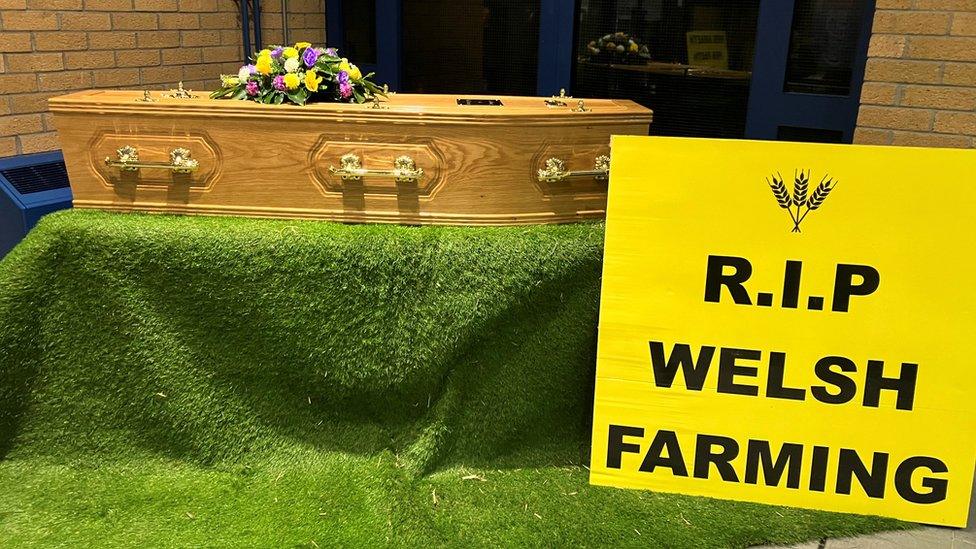
- Published6 February 2024
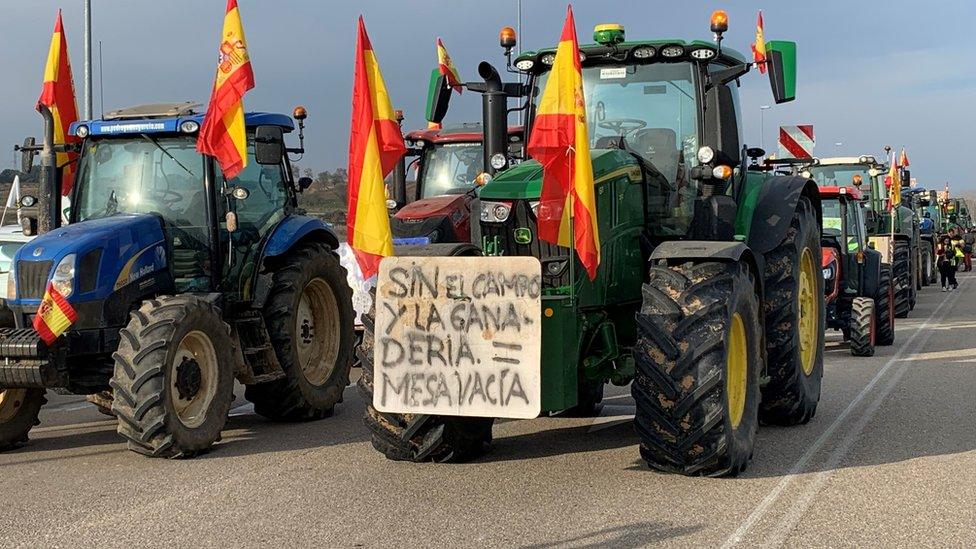
- Published6 November 2023
